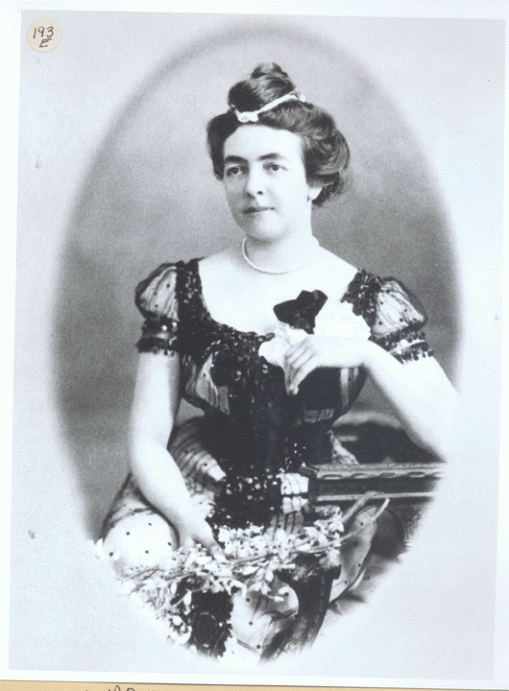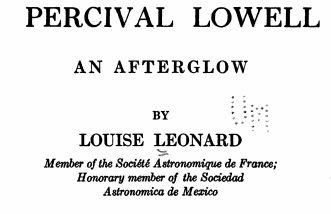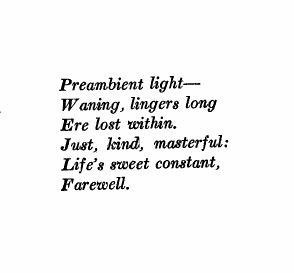Percival Lowell and his secretary, Wrexie Louise Leonard, were constant companions from 1893. They exchanged fond letters; they each had a bedroom in the Baronial Mansion on Mars Hill; and together they tended the garden behind the Clark Observatory, proud of the watermelons and wary of the invading rabbits – calling them “Jack Rabbit, Esqr.”
But, as William Putnam says in The Explorers of Mars Hill, “proper Bostonians just did not marry their secretaries.” Instead, Percival Lowell married the irascible Constance Savage Keith in 1908. What exactly compelled him to choose Constance over any of the other options is unknown; it is well known, however, that Constance disliked the long-established Wrexie, believing her a rival for Percy’s affections.
And maybe she was. Percival Lowell asked Wrexie to stay on as his secretary; remarkably, she did. And when Lowell died in 1916, Wrexie sat down and composed a tribute to the man she had accompanied for nearly twenty years.
The book’s epigraph demonstrates the devotion Wrexie felt for Percy. As William Putnam helpfully points out, hidden in the epigraph’s several lines are tributes to Lowell himself and two of his most faithful “computers” at Harvard College Observatory — the doughty Elizabeth Langdon Williams and John Kenneth McDonald — as well as the two women who made up the binary stars of the great astronomer’s romantic life.
Preambient light = Percival Lowell
Waning, lingers long = Wrexie Louise Leonard
Ere lost within = Elizabeth Langdon Williams
Just, kind, masterful = John Kenneth McDonald
Life’s sweet constant = Lowell Savage Constance
Could it possibly be a coincidence that only Constance Savage Lowell’s initials are reversed — Constance being, as William Putnam notes, “the one who almost succeeded in completely negating [Lowell’s] life’s work?” Might Wrexie have been extracting, here, a very quiet kind of of revenge?
In any case, it’s a fitting tribute to a man whose own initials – PL – are embedded in the very name of the planet whose discovery he made possible. If it was love, it was a love contained and tamed – or so it would appear – but one that insisted, in this smallest of ways, on proclaiming itself.


